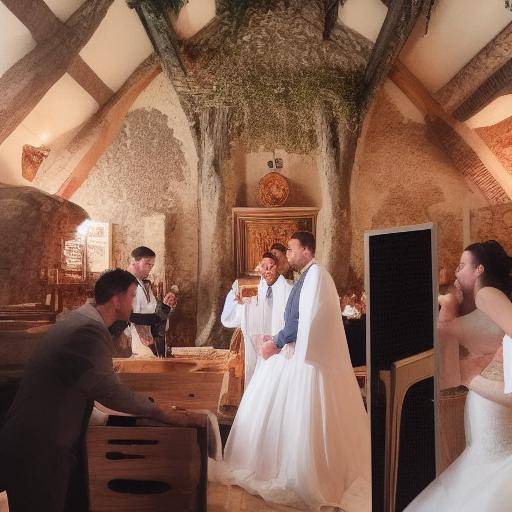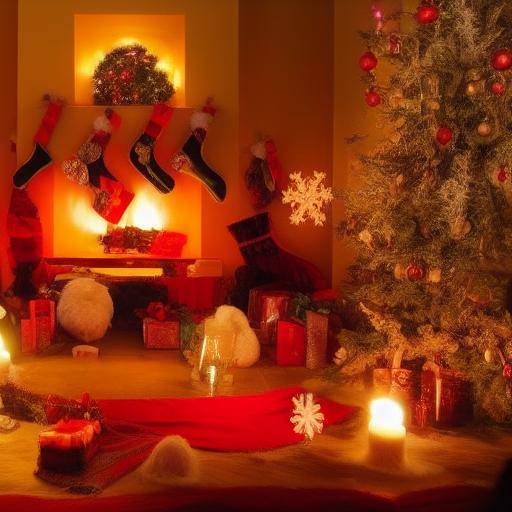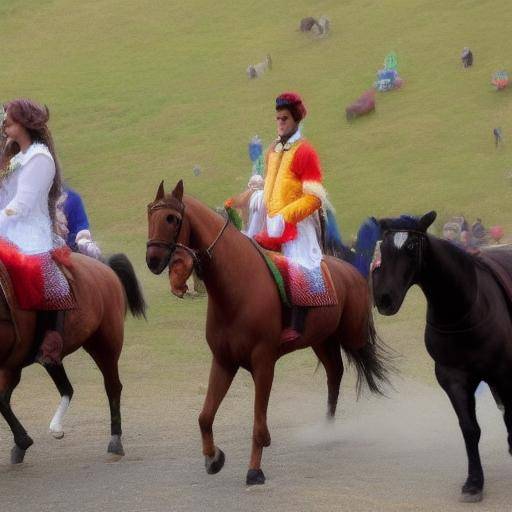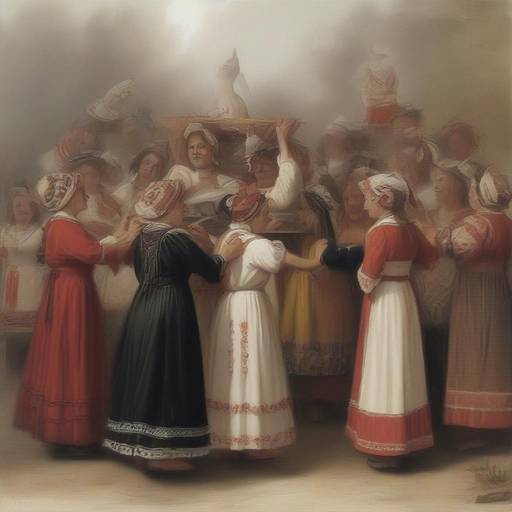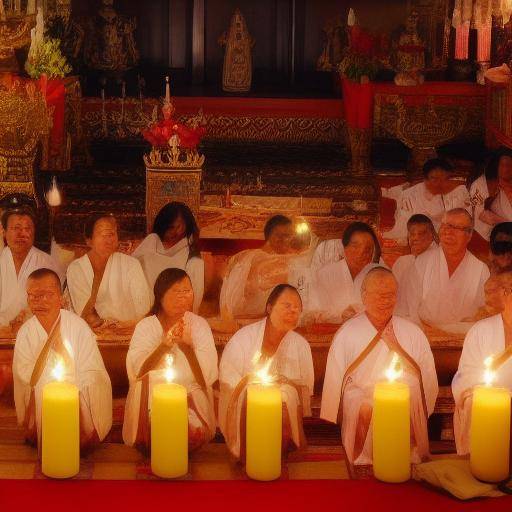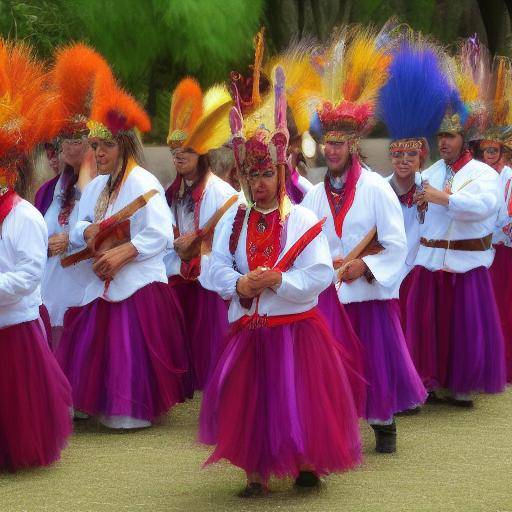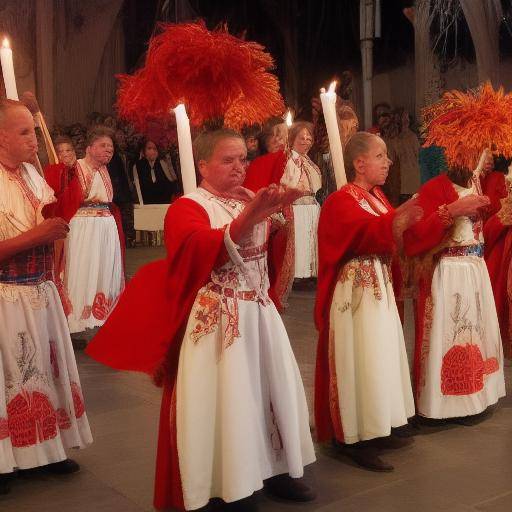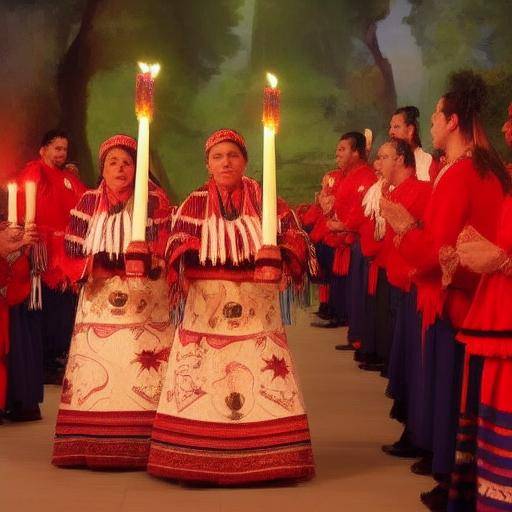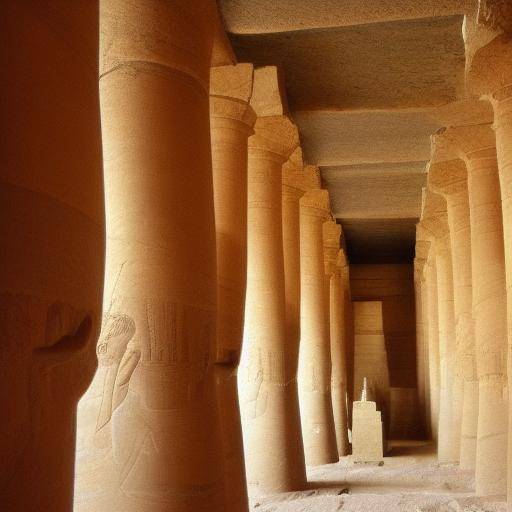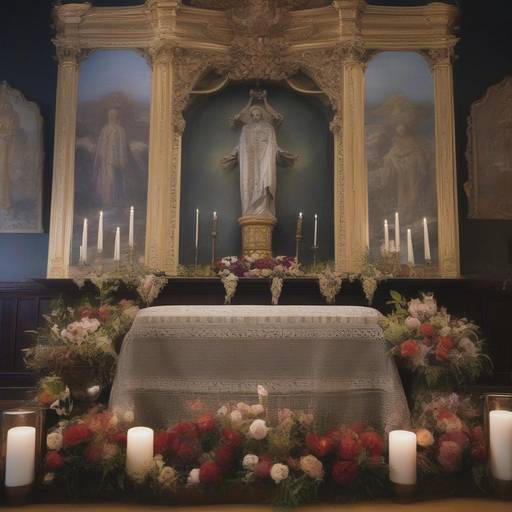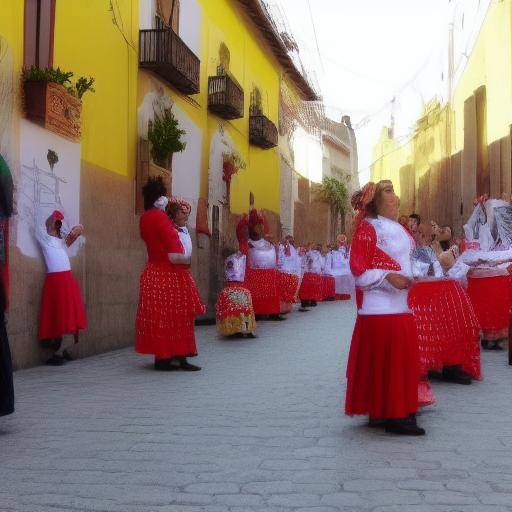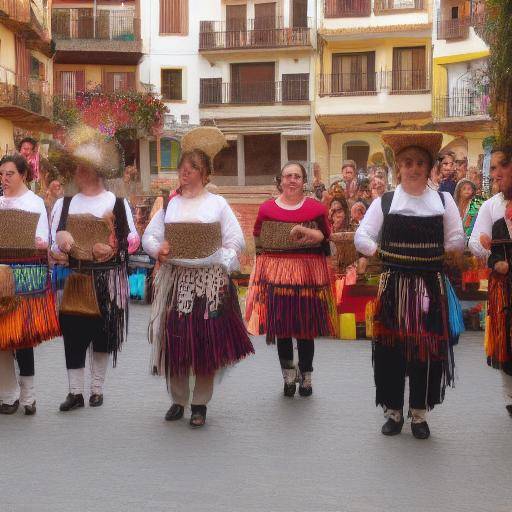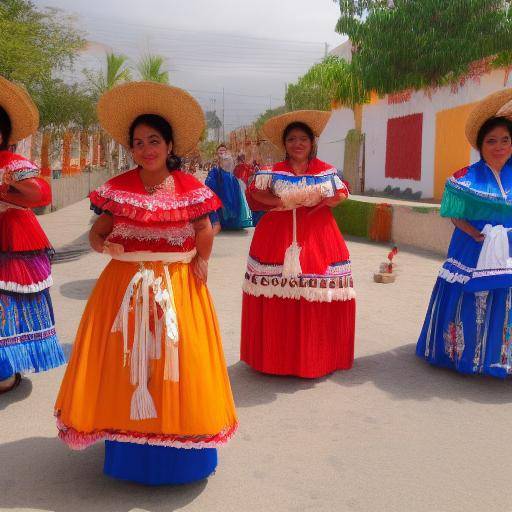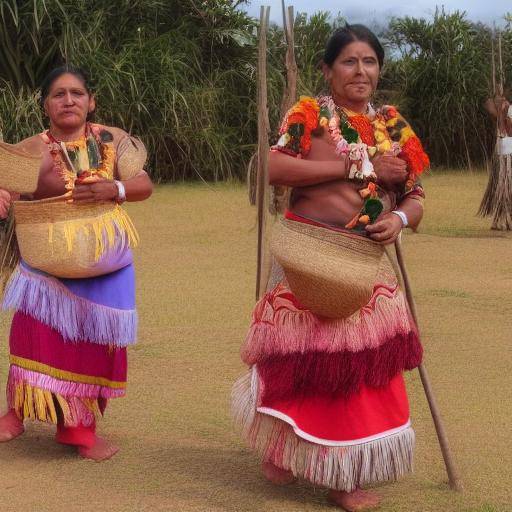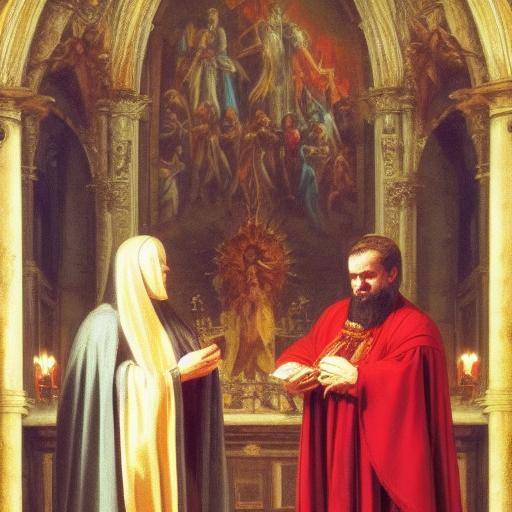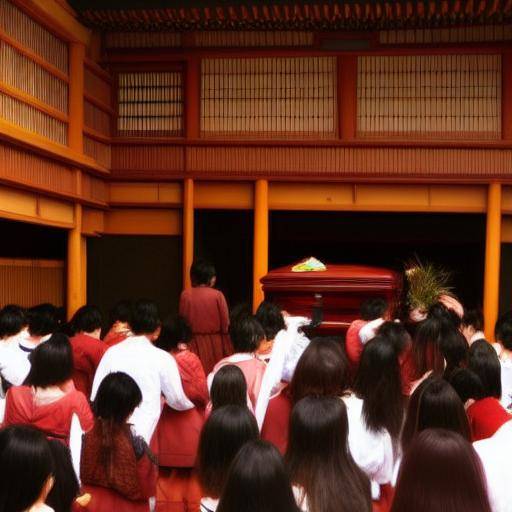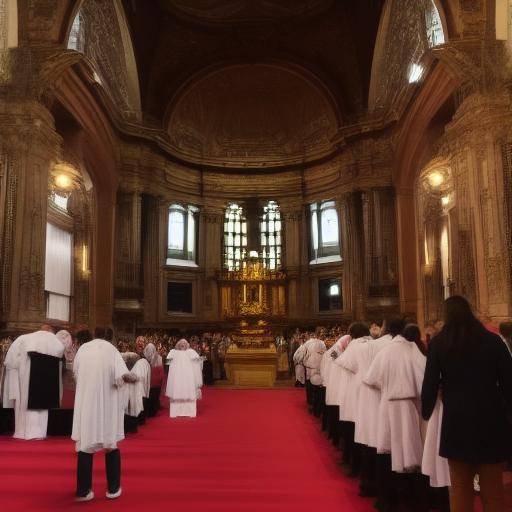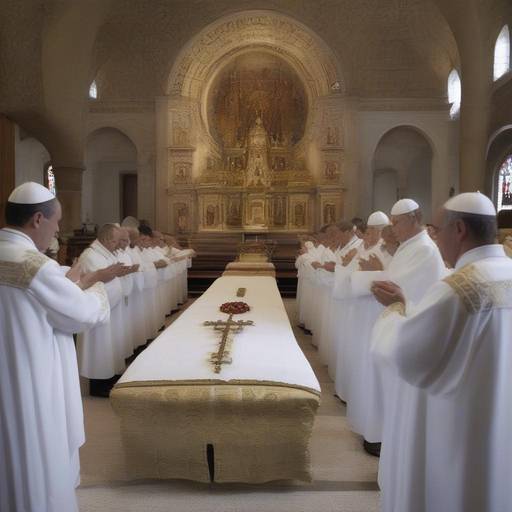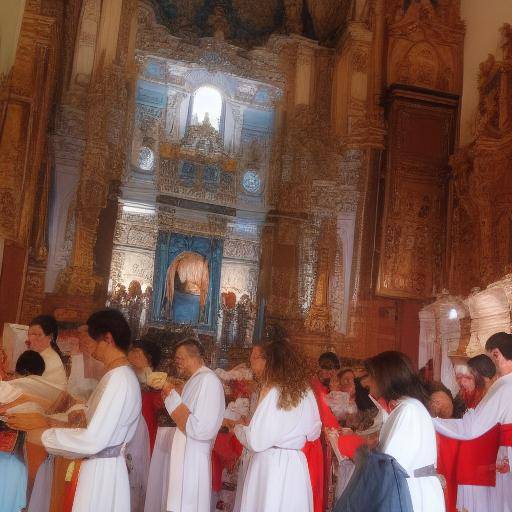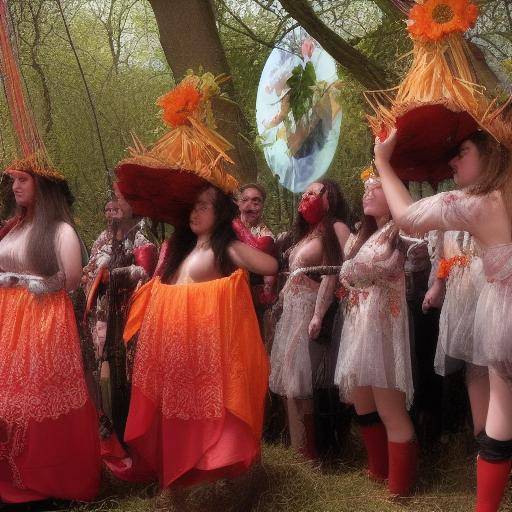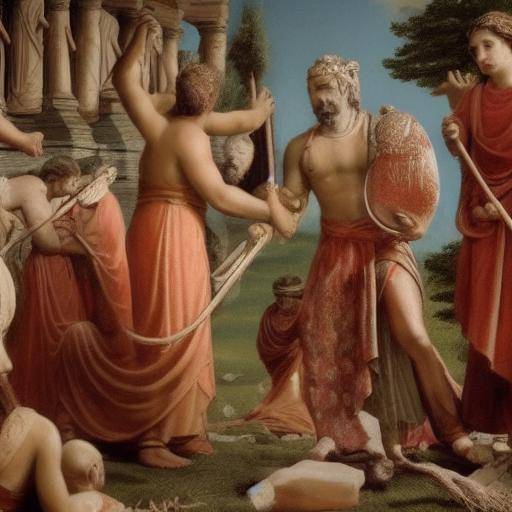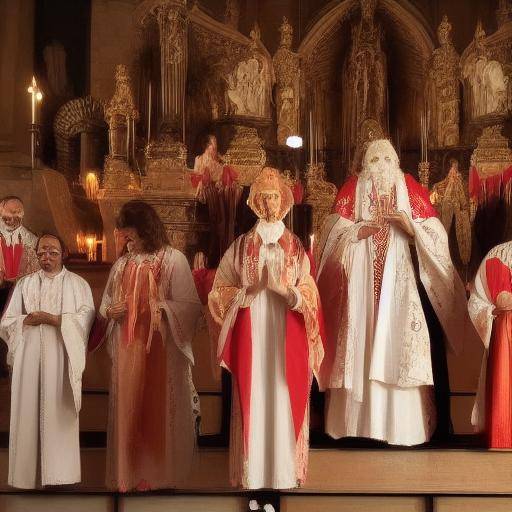
Nordic culture is rich in mythology and ancestral traditions that have endured over the centuries. Among the most significant practices are the sacred rituals, which played a crucial role in the lives of the ancient Nordic peoples. In this article, we will explore in detail the importance, history, evolution and the current relevance of the sacred rituals in the Nordic culture.
Introduction
The sacred rituals in the Nordic culture represented a means of connecting with their gods, honoring their ancestors and marking momentous moments in people's lives. These rituals not only constituted acts of devotion, but also served to strengthen community ties and emphasize the cultural identity of the Nordic peoples.
In this comprehensive analysis, we will explore origins, historical evolution, contemporary relevance, and similarities and differences with other types of rituals in various cultures. We will also provide practical advice and expert perspectives, which will enrich the understanding of ritual practices within Nordic culture.
History and Background
The history of Nordic culture is deeply rooted in myths and legends that have been transmitted over generations. The sacred rituals played a crucial role in the ancient Nordic religion, where they were held to honor the gods, ensure good harvests, celebrate festivities and mark vital milestones such as births, marriages and funerals. These rituals were not only religious practices, but also imbued with cultural and community significance.
Influence of Christianity and Neopaganism
The arrival of Christianity to Scandinavia in the 8th and 9th centuries introduced significant changes in ancient Nordic rituals. Although many rituals were absorbed or transformed by new faith, pagan traditions never completely disappeared. In modern times, the revival of neo-Paganism has revitalized many of these ancient practices, adapting them to a contemporary context while maintaining the essence of ancient Nordic spirituality.
Deep analysis
Assessing the importance of sacred rituals in Nordic culture means considering their continued impact on contemporary society. These rituals, although historically rooted, continue to play a vital role in the cultural and spiritual identity of Scandinavian communities and beyond. The festivities and traditions that have endured reflect the practicality and relevance of these rituals in modern life.
Common Elements in the Rituals
Among the common elements in the Nordic rituals are the invocation of deities, the use of specific symbols, and the realization of offerings and sacrifices. Nature and the cosmos also play a crucial role in these rituals, emphasizing the connection between human beings and the natural world.
Comprehensive review
Compare the sacred rituals of Nordic culture with other types of rituals reveals notable similarities and differences. While some ritual elements can be universal, such as the invocation of superior forces or the marking of natural cycles, iconography, symbols and Nordic cosmovision influence the uniqueness of their practices.
Comparison with Other Cultures
For example, fertility rituals in Nordic culture can be compared to similar practices in Celtic or Greco-Roman cultures, highlighting both the similarities in their purposes and the differences in their venerated executions and deities.
Practical Tips and Accessible Advice
For those interested in participating or simply understanding the Nordic sacred rituals, it is essential to maintain deep respect for traditions and to seek opportunities to learn from reliable sources about their meaning and execution. Participation in cultural and religious events, as well as the search for the guidance of knowledgeable people, can enrich the personal understanding of sacred rituals.
Participation in Modern Ritualities
Today, many New-Plagan communities and historical recreation groups celebrate rituals based on Nordic traditions. Participating in these events can offer a first-hand experience and a deeper appreciation of these ancestral practices.
Recommendations on Reading and Resources
Books, documentaries and courses on mythology and Nordic rituals can provide a solid basis for understanding these practices. Works like "El Hávamál" and "La Edda Poética" are essential for anyone interested in Nordic mythology.
Perceptions of Industry and Expert Reviews
Experts on anthropology, history and religious studies play a crucial role in offering a deeper insight into the historical impact and modern relevance of the Nordic sacred rituals. Their research and publications help preserve and disseminate knowledge about these practices.
Opinions of Anthropologists and Historians
Anthropologists and historians who have dedicated their careers to studying Nordic cultures provide academic and cultural contexts that help to better understand the importance and evolution of sacred rituals.
Case Studies and Real Life Applications
Case studies that illustrate the practice and adaptation of the Nordic sacred rituals in modern life can offer a deeper understanding of their current relevance. From marriage ceremonies to community festivals, these studies show how ancestral traditions are integrated into the contemporary world.
Examples of Modern Ritualities
Some modern festivals, such as the "Blót" in the neo-Pagan communities, keep the ancient rituals alive by adapting them to contemporary contexts and sensitivities. These events not only preserve cultural heritage, but also foster community and identity.
Future Trends and Predictions
As the global interest in ancestral traditions and spiritual practices increases, Nordic sacred rituals are likely to continue to gain popularity. This trend can lead to renewed recognition of the importance of preserving and adapting these traditions in a changing world.
Resilience of the Ancestral Traditions
The resurgence of interest in Nordic spirituality can promote greater appreciation of the connection between human beings and nature, as well as a more sustainable and life-conscious approach.
Conclusion
The sacred rituals in Nordic culture, with their profound historical roots and cultural significance, remain a source of identity and spiritual connection for many people today. By exploring these rituals with respect and curiosity, we can gain a deeper appreciation of the rich Nordic cultural heritage and its relevance in the contemporary world.
FAQs
What are the Nordic sacred rituals?
The Nordic sacred rituals are ancestral religious and spiritual practices that were carried out to honor the gods, to ensure good harvests, to celebrate holidays and to mark vital milestones.
How did Christianity influence the Nordic rituals?
The arrival of Christianity to Scandinavia transformed many of the Nordic ritual practices, although some pagan traditions were absorbed or adapted within the new faith.
What is Nordic Neopaganism?
Nordic neo-paganism is a modern movement that seeks to revive and adapt old Nordic religious and spiritual practices to a contemporary context.
What are some common elements in the Nordic rituals?
Common elements include the invocation of deities, the use of specific symbols and the realization of offerings and sacrifices.
How can you learn more about the Nordic sacred rituals?
You can learn more by participating in cultural and religious events, reading works on Nordic mythology and looking for the expert guide on the subject.
What relevance do the Nordic rituals have today?
The Nordic rituals remain relevant as a source of cultural identity and spiritual connection, and are gaining popularity in contemporary spiritual movements.
Are there modern festivals celebrating the Nordic rituals?
Yes, there are modern festivals such as "Blót" in the neo-Pagan communities that celebrate and adapt ancient rituals to contemporary contexts.
Exploring the Nordic sacred rituals offers an opportunity to connect with a rich cultural and spiritual heritage, providing valuable insights on the intersection of tradition and modernity.






